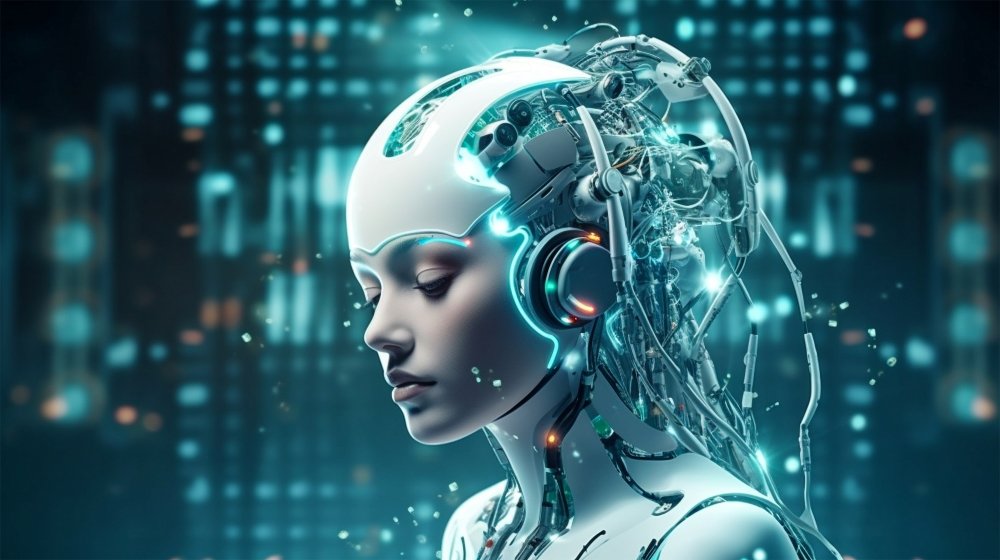Artificial Intelligence (AI) continues to evolve at a rapid pace, reshaping industries and redefining the way we live and work. As we progress through 2025, several key trends are emerging that promise to drive the next wave of innovation. Understanding these trends is crucial for businesses, developers, and consumers aiming to stay ahead in this dynamic landscape.
1. Generative AI Becomes Mainstream
Generative AI has transitioned from a novel concept to a mainstream tool across various sectors. In 2025, its applications have expanded beyond text and image generation to include video, music, and even complex simulations. Businesses are leveraging generative AI to create personalized marketing content, design products, and develop virtual environments.
The integration of generative AI into daily operations is enhancing creativity and efficiency. For instance, in the entertainment industry, AI-generated scripts and storyboards are accelerating content production. In education, personalized learning materials are being crafted to suit individual student needs.
However, this widespread adoption also raises concerns about authenticity and intellectual property rights. Ensuring transparency and establishing ethical guidelines are paramount as generative AI continues to permeate various domains.
2. AI-Powered Robotics Revolutionize Industries
Robotics, powered by advanced AI algorithms, are transforming industries by automating complex tasks and enhancing precision. In manufacturing, AI-driven robots are streamlining assembly lines, reducing errors, and increasing productivity. Healthcare is witnessing the deployment of robotic assistants capable of performing surgeries with unparalleled accuracy.
The integration of AI in robotics is also evident in agriculture, where autonomous machines are monitoring crop health and optimizing harvesting processes. Logistics companies are employing AI-powered drones and robots for efficient inventory management and delivery services.
As these intelligent machines become more prevalent, there is a growing emphasis on developing robust safety protocols and addressing ethical considerations related to employment and human-robot interactions.
3. Ethical AI and Regulatory Frameworks Gain Traction
With AI systems increasingly influencing critical decisions, the demand for ethical AI practices and regulatory oversight has intensified. Governments and organizations worldwide are formulating policies to ensure AI technologies are developed and deployed responsibly.
In 2025, frameworks focusing on transparency, accountability, and fairness are being implemented to mitigate biases and prevent misuse. For example, the European Union has introduced comprehensive regulations mandating rigorous testing and validation of AI systems before deployment. Similarly, industry bodies are establishing standards to guide ethical AI development.
These initiatives aim to build public trust and ensure that AI advancements align with societal values and human rights.
4. AI Enhances Cybersecurity Measures

As cyber threats become more sophisticated, AI is playing a pivotal role in fortifying cybersecurity defenses. Machine learning algorithms are being utilized to detect anomalies, predict potential breaches, and respond to incidents in real-time.
In 2025, organizations are adopting AI-driven security solutions that can analyze vast datasets to identify patterns indicative of malicious activities. These systems are capable of adapting to evolving threats, providing a proactive approach to cybersecurity.
Furthermore, AI is assisting in securing Internet of Things (IoT) devices, which are increasingly targeted by cybercriminals. By monitoring network traffic and device behavior, AI helps in identifying vulnerabilities and preventing unauthorized access.
5. AI Democratization Empowers Small Businesses
The democratization of AI is enabling small and medium-sized enterprises (SMEs) to harness the power of advanced technologies without substantial investments. Cloud-based AI platforms and user-friendly tools are making it feasible for businesses with limited resources to integrate AI into their operations.
In 2025, SMEs are leveraging AI for various applications, including customer service chatbots, predictive analytics, and inventory management. This accessibility is leveling the playing field, allowing smaller businesses to compete with larger counterparts by enhancing efficiency and customer engagement.
Moreover, educational initiatives and online courses are equipping entrepreneurs with the knowledge to implement AI solutions effectively, fostering innovation across diverse sectors.
Conclusion
The AI landscape in 2025 is characterized by rapid advancements and widespread adoption across industries. From generative AI and intelligent robotics to ethical considerations and cybersecurity enhancements, these trends are shaping a future where AI is integral to innovation and societal progress.
Staying informed and adaptable is crucial for individuals and organizations aiming to thrive in this evolving environment. Embracing these trends will not only drive growth but also ensure responsible and equitable integration of AI technologies.
For more insights into the latest AI developments and how they can impact your business, visit TechThrilled.
